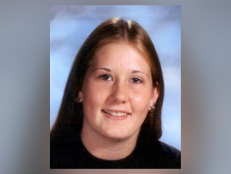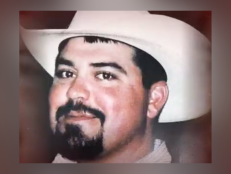French Woman Who Fatally Shot Abusive Husband Set Free After Surprise Sentence
Valérie Bacot says she feels ‘emptied mentally and physically’ now that her trial and decades-long ordeal is over.
![Valérie Bacot talks to journalists as she leaves Chalon-sur-Saone Courthouse on June 25, 2021 at the end of her trial. [via Getty Images/Jeff Pachoud/AFP]](http://investigationdiscovery.sndimg.com/content/dam/images/investigationdiscovery/crimefeed/legacy/2021/07/GettyImages-1233653738.jpg.rend.hgtvcom.616.411.suffix/1625854634197.jpeg)
Valérie Bacot talks to journalists as she leaves Chalon-sur-Saone Courthouse on June 25, 2021 at the end of her trial. [via Getty Images/Jeff Pachoud/AFP]
A French woman who killed her husband after she said he had abused her for decades will not have to serve any more time behind bars.
On June 25, a jury in Chalon-sur-Saône, Burgundy, handed down a four-year prison sentence with three years suspended to Valérie Bacot. She was given credit for the one year she had already served behind bars. Bacot was now free.
In court testimony leading up to the decision, Bacot, 40, detailed the horrific abuse she suffered as a child. At the age of 12, Daniel Polette, her mother’s partner at the time, started raping her, she said.
Polette, who was 25 years Bacot’s senior, went to prison for almost three years for sexually assaulting a minor but, she said, the abuse started again when he promised her mother he would stop and she allowed him to return home.
“Nobody seemed to find it bizarre that Daniel came back to live with us as if nothing had happened,” Bacot wrote in her recently published book, “Everyone Knew”, according to The New York Times.
Bacot was 17 when she got pregnant with Polette’s baby and her mother threw her out. Bacot and Polette moved in together, and she gave birth to the first of their four children. “I wanted to keep my child. I had nobody,” she explained in court. “Where could I go?”
Ten years later, she and Polette married, and the abuse escalated. “At first it was slaps, then kicks, punches and he would strangle me,” Bacot testified, saying her husband threatened to kill her and she was “afraid to die every day.”
Polette eventually forced his wife into sex work, which she was made to do over the course of 11 years from the back of his van he equipped with a mattress, Bacot said.
Two events proved to be the turning point for Bacot.
She told the court she feared for her daughter with Polette after he made sexually inappropriate comments to the 14-year-old. Then, on March 13, 2016, a client raped Bacot. After the sexual assault, she took a gun Polette kept in the car and shot her husband in the head. She buried his body in the woods with the help of two of their children.
“I simply wanted to protect myself. Protect my life, the life of my children. In my eyes, nothing else ever mattered,” she wrote in her book, according to CNN.
The couple’s two children each received six-month suspended sentences for their role in getting rid of their father’s body, RFI reported.
At trial, Bacot’s lawyers centered their case around the argument that Bacot shot her husband in self-defense and was in an altered state of mind due to the years of abuse.
“She could not resort to the law,” Denis Prieur, a psychiatrist, testified. “There is no other possibility than to make him disappear.”
Prosecutors — who told the court they were seeking a five-year prison sentence with four years suspended, barely more than what Bacot received in the end — acknowledged the suffering she had endured but contended the murder was premeditated.
“It could be argued that it was premeditated, but this was a woman who had been tyrannized her entire life,” Bacot’s defense lawyer, Janine Bonaggiunta, countered in an interview with The Guardian. “He controlled everything and this was the only way she could get out of this situation.”
The New York Times reported Bacot fainted after learning prosecutors’ sentencing request, which she expected to be more severe and could have been as much as up to life in prison.
"I am not only a victim. I killed him; it is only normal that I should be punished,” Bacot wrote in her book prior to the trial. “But if my sentence is heavy, that will mean to me that he had the right to behave the way he behaved with me.”
A jury then further reduced the prosecutors’ surprise sentence request and Bacot was free to go.
“This trial is a big step for me, to manage to put things behind me and to move on,” Bacot said after the decision, later noting she’s “not relieved, but rather emptied mentally and physically.”
Defense lawyer Bonaggiunta told AFP female victims of violence often face scarce protection in the legal system.
“The judiciary is still too slow, not reactive enough and too lenient towards the perpetrators who can continue to exercise their violent power,” she said. “This is precisely what can push a desperate woman to kill in order to survive.”
![Timothy W. Bliefnick [inset] fatally shot Rebecca Bliefnick [main] on Feb. 23, 2023 while the couple was in the process of getting a divorce.](http://investigationdiscovery.sndimg.com/content/dam/images/investigationdiscovery/crimefeed/legacy/2023/03/facebook-rebecca-bliefnick-adams-county-sheriffs-office-tim-bliefnick-31623.png.rend.hgtvcom.231.174.suffix/1678996818449.png)








